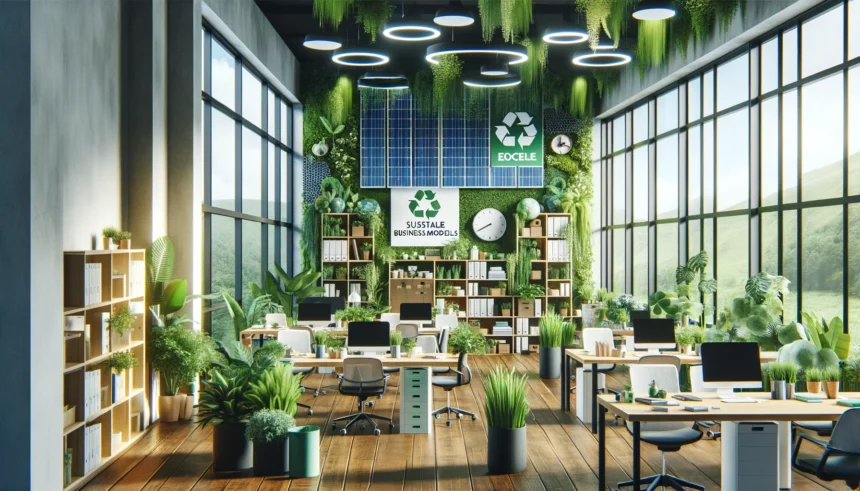Why Does Sustainability Matter in Business?
The importance of sustainability is rising within corporate circles, sparked by increased concern over environmental preservation and equality. Today, integrating sustainable practices isn’t just an ethical choice—it’s also a strategic move. Companies that focus on sustainability can better their reputations, draw in eco-conscious customers, and adapt to environmental regulations while paving the way for sustained growth.
Sustainability isn’t just about doing good; it’s about doing well in business too. It opens doors to innovation, improved efficiencies, and a chance to stand out in crowded markets.
Revolutionizing Business with Sustainability
Embracing the Circular Economy
One of the brightest stars in the constellation of new business models is the circular economy. Moving away from the traditional “take-make-dispose” approach, this model promotes a cycle of reusing, repairing, remanufacturing, and recycling materials and products. The circular economy not only curbs waste and reduces environmental harm but also unlocks economic benefits. By 2030, its global economic impact could soar to a whopping $4.5 trillion.
Creating Eco-Friendly Products
Another key to sustainable business practices is the development of eco-friendly products. Today’s consumers are actively seeking products that are kind to the earth, ethically produced, and have a minimal carbon footprint. Companies are responding by using renewable materials, cutting down on energy use, and innovating in packaging. This not only helps the planet but also gives businesses a competitive edge.
Ensuring Responsible Supply Chains
A truly sustainable business model extends all the way down the supply chain. From the extraction of raw materials to manufacturing and distribution, sustainability needs to be at the forefront. This means opting for ethical sourcing, promoting fair labor practices, and minimizing environmental impacts at each step. Responsible supply chain management is crucial for companies committed to sustainable development.
Challenges and Opportunities Ahead
Adopting these new models isn’t without its hurdles—initial costs, technological needs, and resistance to change are common challenges. However, the potential benefits include sparking innovation, gaining a competitive advantage, and building long-term value.
In embracing these innovative business strategies, companies don’t just prepare themselves for future regulatory changes and shifting consumer preferences; they also play a vital role in driving positive social impacts and securing trust from their stakeholders.
Looking Forward
Sustainability is more than a mere buzzword; it’s a strategic pillar for modern businesses aiming for longevity and relevance in a dynamic global market. As we move forward, weaving sustainability into the fabric of business operations will be crucial for fostering innovation, resilience, and meaningful growth.
Businesses of today are not just market participants; they are active players in shaping a sustainable future. The journey toward greener business practices is both a challenge and an opportunity—one that will define the next era of corporate success.
















